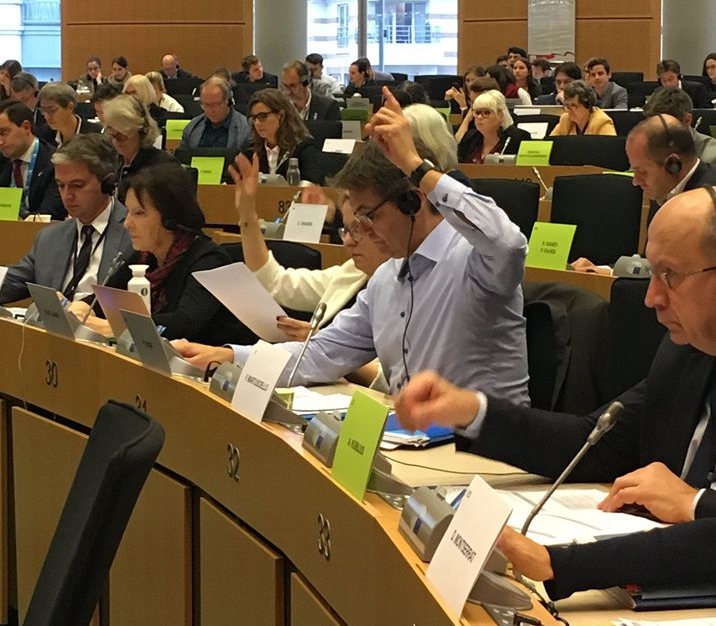EPP-Group focuses on innovation, support for structural change, market-based means and forest protection
The ENVI Committee of the European Parliament is sending a clear signal against the climate protection policy of US President Donald Trump. While Trump formally announced at the beginning of the week that he would be withdrawing from the Paris climate protection agreement, a large majority of the members of the ENVI Committee even voted for a stronger commitment to climate protection. The EU should not only raise its own climate targets but above all cooperate with other industrialised and emerging countries to raise ambitions together.
"Donald Trump's announcement is a very bad signal, but I am sure that it will survive Donald Trump. The resignation can only come into force once the next presidential election has taken place in the USA and I then hope for improvement", said the environmental policy spokesperson of the largest Group in the European Parliament (EPP, Christian Democrats).
Irrespective of this, there is a strong commitment to the climate protection agreement in many parts of the world. China, India, Brazil and South Africa, as well as the EU, are even considering increasing the commitments made in the Paris Agreement and doing more for climate protection. "It is very good that the new President of the Commission is making this a priority and, together with other partners, wants to improve climate protection. For the EPP it is important that climate protection will not be accompanied by job losses and competitiveness. Correctly done climate protection can even create additional jobs and additional economic growth. We are relying on innovation and support for regions affected by structural change, such as coal regions. Moreover, it cannot be expressed often enough that sustainably managed forests are the best climate protectors. That is why we, as the EU, must be committed to combating the dying of our forests. All these points can be found in this resolution, which is why we supported them with full conviction", said Liese.
Nevertheless, it also sees some critical points. "Contrary to Ursula von der Leyen's announcement and the position of the Greens and Social Democrats in Germany, at European level these parties have spoken out against CO2 pricing for the transport and building sector. I think this is completely absurd. How can one explain to a medium-sized entrepreneur, for example a freight forwarder, that he has to pay a CO2 price in Germany, but the same parties that criticise that the price in Germany is too low are preventing competitive equality in the European Union? The Greens and parts of the Social Democrats are relying solely on command and control. This is due to ideological reasons and makes no sense at all. The EPP has also spoken out against an unconditional increase of the target to 55%. We support Ursula von der Leyen's line. We should in any case increase the climate target to 50%. However, the increase to 55% will hit many companies and above all private individuals particularly hard. That is why this can only happen if we are really successful in international climate policy and if the consequences have been carefully analysed. Unfortunately, these two conditions were not acceptable to the other groups. That is why we must continue to work on this point," concludes Peter Liese.


